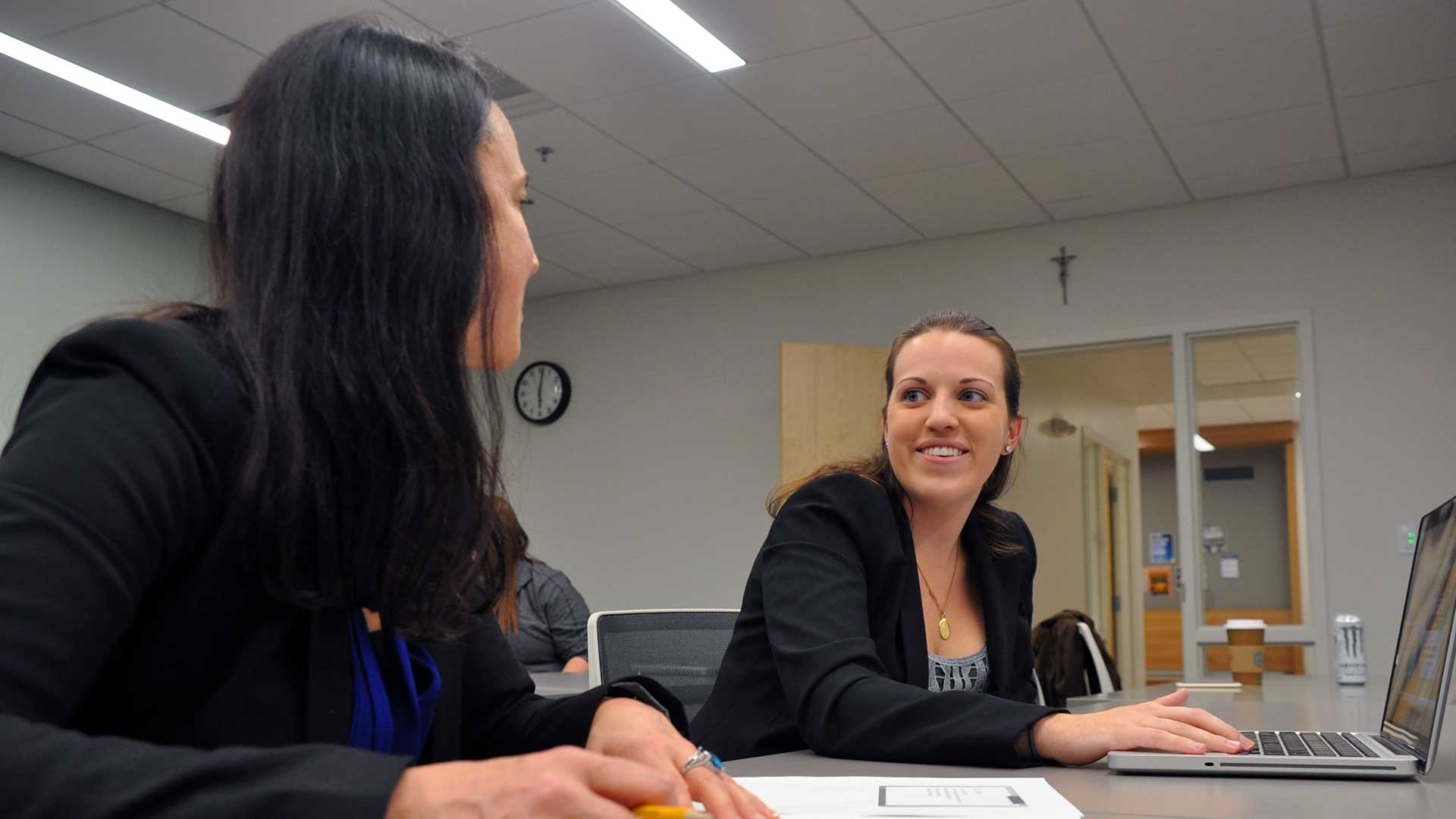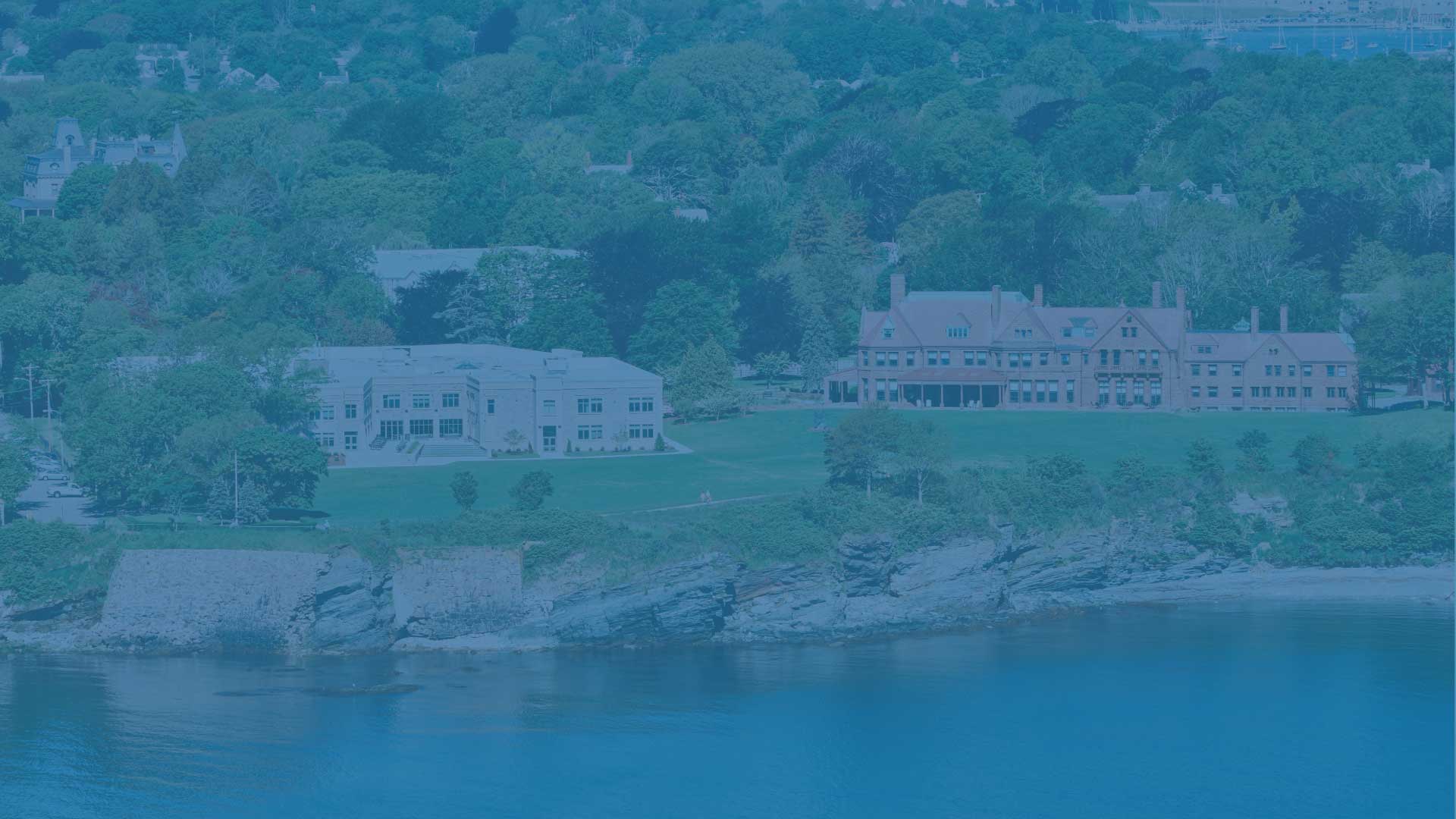Mental Health

Mental Health: Concentration in Rehabilitation Counseling
Get Started
Mental health and rehabilitation counseling share a commitment to increasing the quality of life for people with disabilities and mental health issues. Salve Regina University's graduate certificate in mental health is designed for students who hold a master's degree in rehabilitation counseling or a related field and are interested in pursuing state licensure as a mental health counselor.
Promote Universal Justice for People With Disabilities
Our four-course graduate certificate empowers professionals to advocate for accessible, evidence-based mental health programming and is based on the belief that opportunities for people with mental illness should be equal to those of all other citizens.
The interdisciplinary curriculum draws from psychology, education, behavioral sciences and biological sciences to prepare clinically skilled, knowledgeable and committed rehabilitation and mental health professionals.
Number of Courses
Four
Program Format
Online (Synchronous)
Tuition
$2,190 per course
Course Requirements
Salve Regina's graduate certificate in mental health is designed for professionals who have a master's degree in counseling that is fewer than the 60 credits required for licensure in most states. While the program is modeled on a national standard for mental health counseling licensure, we recommend that students explore the specific requirements in the state where they intend to practice. If needed, additional courses may be added to reach the required 60 credits.
Required courses:
- RHB515: Assessment and Treatment Planning
- RHB603: Psychopharmacology for the Mental Health Professional
- RHB608: Advanced Internship I and Seminar: Cognitive Behavioral Therapy
- RHB609: Advanced Internship II and Seminar: Trauma-Informed Care
Licensure in Mental Health Counseling
Students who are seeking licensure as a mental health counselor through the completion of a CAGS must confirm with the licensing board in the state in which they wish to practice that at least 42 credits from their previous master's degree are eligible toward licensure in mental health counseling.
Students must also confirm one of the following:
- You are currently working in the mental health field and graduated from your previous master's degree program 10 or fewer years ago.
- You are not currently working in the mental health field but graduated from your previous master's degree program six or fewer years ago.
RHB515: Assessment and Treatment Planning
This course familiarizes students with the assessment process, how to interview and use assessment tools in conjunction with the DSM-5 and ICD-10 to arrive at a diagnosis and treatment plan. It compares standard assessment techniques and process-oriented interviewing. This course provides an introduction to the principles, concepts, methods and applications of assessing human experience for counseling purposes. Topics include the history and philosophy behind measurement and assessment in clinical mental health counseling; psychometric concepts; common assessment formats for measuring constructs such as personality and behavior; clinical decision-making, diagnostic assessment, clinical interviewing and treatment planning; and holistic considerations within assessment.
RHB603: Psychopharmacology for the Mental Health Professional
This course examines the fundamentals of drug pharmacology and drug interactions. Faculty review current psychotropic medication protocols as well as herbal and nutraceutical complements to psychotherapy and therapeutic interventions. It is a primer for all mental health professionals who want to learn more about the drugs their clients are prescribed and how it may impact their quality of life and overall wellness.
RHB608: Advanced Internship I and Seminar: Cognitive Behavioral Therapy
This seminar provides a comprehensive overview of past and current psychotherapeutic approaches, with the primary focus on the cognitive behavioral, evidence-based therapeutic intervention, dialectic behavioral therapy that is used for treatment of borderline personality disorder as well as other mental health related issues. Students gain familiarity and insight into the practical application of this intervention through discourse and subsequent practice with fieldwork application. Additionally, this seminar addresses principles of crisis intervention for people with mental health disabilities during crises, disasters and trauma-causing events. Students learn to implement effective crisis assessment tools for clients that are in overwhelming emotional turmoil and recommend the appropriate clinical intervention(s) based upon the aforementioned tools. Students are required to complete a minimum of 500 hours over a four-month period as a clinical rehabilitation and mental health counselor intern. Students must be supervised one hour per week under the supervision of an M.A.-level licensed on-site counselor approved by the University.
RHB609: Advanced Internship II and Seminar in Mental Health: Trauma-Informed Care
This course provides a comprehensive overview of treating traumatic stress disorders, including neurobiological impacts, etiology and conceptualization of diagnosis and treatment. Best practices and relevant evidence-based practices of assessment are examined and practiced in clinical settings. This course presents the latest research in treatment and interventions, including cultural considerations, accessing community support and self-care for clinicians who treat this population. Students develop a case formulation and treatment plan for a trauma survivor population that can serve as a practical template for subsequent use. This course is also second advanced internship. Students continue to work as a clinical rehabilitation and mental health counselor intern for an additional minimum 200 hours.

Our Faculty
Our faculty are seasoned professionals who are experts in their field. Instructors work one-on-one with students to meet their individual needs while serving as career-focused mentors.
Payment
Options
Courses are billed individually at the start of each class. Please note that there is a $60 registration fee per semester.
Tuition Reimbursement
If your employer is paying all or part of your tuition, we will arrange payment directly from your employer where possible.
Student
Loans
Our certificate programs are eligible for federal student loans. To qualify, you must complete two courses per semester.
Military and
Veterans
Salve Regina is approved for veterans’ benefits and has been named a Military Friendly School.